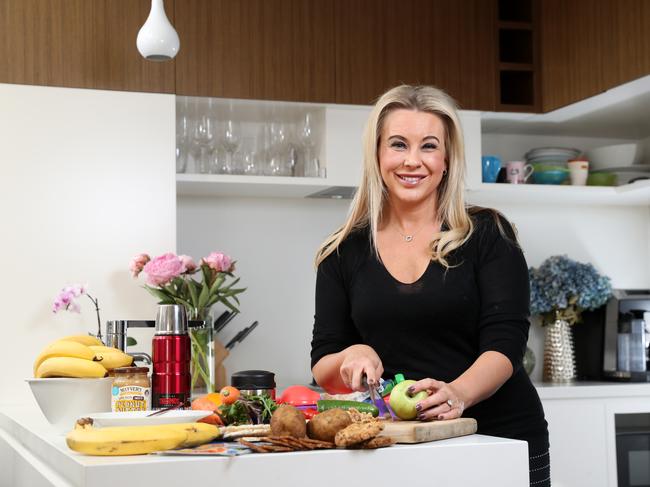Susie Burrell: How to supercharge your diet this spring
Do you want to know how to eat your way to better health? Leading dietitian Susie Burrell taps into her experience as a coach and nutritionist to provide some top tips.
SmartDaily
Don't miss out on the headlines from SmartDaily. Followed categories will be added to My News.
If there’s one thing we’ve learned from the pandemic it is this: None of us can take our diet or health for granted. Immunity is the buzzword for 2020, and how to use food as medicine is a key search trend in nutrition.
In my first piece for SMARTdaily I will tap into my 20 years’ experience as a coach, clinical dietitian and nutritionist to show you how to supercharge your diet this spring.
With the year we have had, is it any wonder that eating to support immunity is of much interest? But, remember: your food, your body, your life.

And while the thought of downing probiotic shots along with litres of vegetable juice sounds like an easy way to fend off any bugs, the science of immunity is a little more complex.
Specifically, it is both the body’s nutritional status and how healthy we are in general, as well as the nutrients we obtain from food, that support optimal immune function.
The amino acids found in protein-rich foods, a range of essential vitamins and minerals – including Vitamins A, C, D and E, selenium, iron and zinc – as well as dietary fibre and probiotics, play roles in initiating and regulating the immune response.
So if the arrival of spring is a reminder for you to take stock of your own health, here are some of the key dietary steps you can take.

1) Iron and zinc are super nutrients
Two of the key nutrients that directly support immune function, iron and zinc, are low in the diets of many Australians. Meat eaters need to consume red meat at least two to three times each week, to ensure the body has access to sources of iron that are well absorbed.
Zinc can be found in meat, shellfish, nuts and seeds, including pumpkin seeds (pepitas). Adults need to consume foods rich in zinc daily, so it’s a good time to get the prawns on the barbie.
2) The health of the gut is important
Now more than ever we understand the extent to which our gut health affects our overall immune function. Working towards better gut balance means including both pro and prebiotics in your diet daily.
Probiotics reintroduce good bacteria to the gut and are typically found in cultured yoghurts, fermented drinks such as Yakult, fermented vegetables such as sauerkraut and kimchi, and supplementary products available in pharmacies. Prebiotics, on the other hand pass through the digestive tract undigested and feed good gut bacteria. Fibre-rich foods that act as prebiotics include asparagus, leeks, onions, beans and supplementary fibres, such as psyllium, pectin and guar gum.
3) The evidence for vitamin C
While links have been drawn between a high vitamin C intake and a reduction in cold-like symptoms for hundreds of years, there is not much scientific basis for this.
Still, foods rich in vitamin C, including oranges, Kiwi fruit, berries, tomatoes, red capsicum and broccoli, are all antioxidant and vitamin-rich foods which can only offer nutritional benefits. The daily recommended intake of vitamin C is 40mg, but you can safely double this dose, and a daily serve of berries, citrus and Kiwi fruit will give a significant vitamin C hit, especially when recovering from infection.
4) Time for a vitamin D check
It is estimated that at least 30 per cent of Australian adults have low vitamin D levels, and this is now likely even higher, due to winter hibernation and more time spent at home thanks to COVID. Vitamin D not only plays a key role in bone health and mood regulation but in regulating immune function.
This means that a daily dose of sunlight is incredibly important at the moment, as is regular intake of oily fish, eggs and dairy foods to help optimise intake and absorption of this important nutrient.
MORE NEWS
Watch out for the reality TV superspreaders
